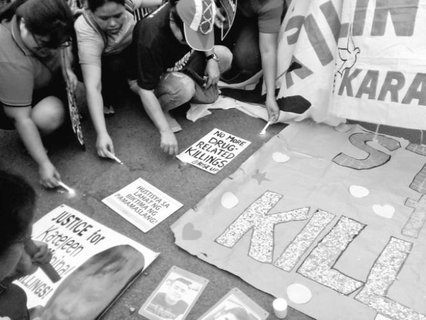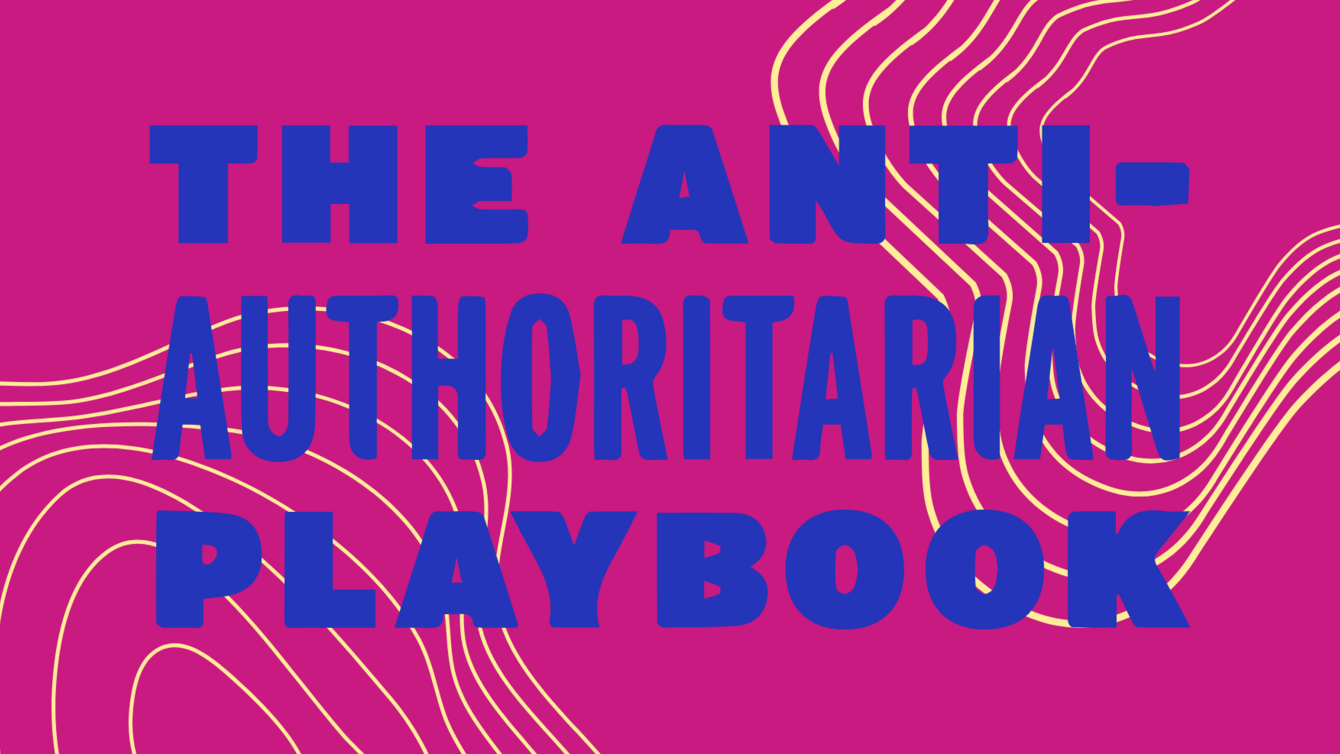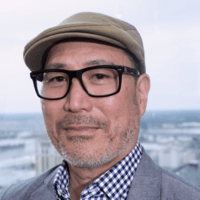Philippine President Duterte’s murderous regime in the Philippines is a study in digital age A form of top-down political system that concentrates state power in the hands of a single leader and/or group of close allies. Learn more . Even while directing thousands of extrajudicial executions during his reign as president, Duterte enjoyed approval ratings above 70%. Looking at how former Philippine President Duterte (2016-2022) took control of the national narrative through hijacking social media and turning it into a disinformation machine offers a glimpse into an emerging tactic in the authoritarians’ tactical playbook.
Here’s a summary.
Facebook essentially is the internet for most citizens in the Philippines. President Duterte recognized this. He understood that controlling the information ecosystem meant using that platform to control the narrative. He didn’t need to shut down traditional media outlets; he simply made them irrelevant by building a parallel reality through coordinated networks of influencers, trolls, and true believers.
What we’re witnessing is a version of a core tactic of authoritarians, now supercharged by algorithms and micro-targeting. The tactic involves fabricating an existential threat (in Duterte’s case, drug dealers), positioning yourself as the only solution, and then normalizing increasingly extreme measures as “necessary” responses.
“The Philippines isn’t just a cautionary tale; it’s a preview of what happens when digital authoritarianism goes unchecked.”
In watching the Philippines, we see how quickly the normalization of violence happens. When you’ve convinced people that drug dealers are an existential threat to society, extrajudicial killings become acceptable “tough medicine.” The digital infrastructure allows this normalization to happen faster than ever before.
The conditions that made the Philippines vulnerable, including high social media penetration, public disillusionment with institutions, and weak regulatory frameworks, all exist in the United States today.
We shouldn’t be complacent. Digital tactics can erode democratic norms rapidly when deployed systematically.
Most importantly, we need to understand that this isn’t just about Duterte or any individual leader; it’s about a replicable model for autocratic control that works within the facade of democratic institutions. The Philippines isn’t just a cautionary tale; it’s a preview of what happens when digital authoritarianism goes unchecked. And the U.S. isn’t immune.
“The Duterte administration actively engaged in disinformation campaigns to manipulate public perception.”
How Duterte Weaponized Social Media
Exploiting Facebook’s Dominance
In the Philippines, Facebook serves as the primary gateway to the internet for many citizens, due in part to telecom partnerships offering free access to the platform. Duterte’s campaign capitalized on this by flooding Facebook with content that resonated with the public’s frustrations and desires for change. His team produced and disseminated memes, videos, and posts that portrayed him as a decisive, anti-establishment figure committed to eradicating crime and corruption. This approach aligned seamlessly with Facebook’s algorithms, which prioritize engaging and emotionally charged content.
Deploying a Network of Trolls and Influencers
Duterte’s digital strategy included the creation of a sophisticated network of trolls and influencers tasked with amplifying pro-Duterte narratives and discrediting critics. Prominent figures such as Mocha Uson and RJ Nieto played pivotal roles in this ecosystem, producing content that targeted various demographics and reinforced the administration’s messaging. These operatives coordinated attacks on journalists, opposition figures, and human rights advocates, often resorting to harassment and threats to silence dissent.
Spreading Disinformation and Historical Revisionism
The Duterte administration actively engaged in disinformation campaigns to manipulate public perception. This included the dissemination of false information, conspiracy theories, and revisionist histories that downplayed the atrocities of past regimes and vilified current opposition. Such tactics were instrumental in shaping a narrative that justified the administration’s actions and eroded trust in traditional media and democratic institutions.
“Duterte’s use of social media fostered a deeply polarized society, where dissenting voices were often labeled as enemies of the state.”
Impact on Governance and Society
Undermining Democratic Institutions
The relentless online attacks orchestrated by Duterte’s digital apparatus contributed to the weakening of democratic institutions. Journalists faced legal challenges and threats, leading to a chilling effect on press freedom. The judiciary and other checks on executive power were similarly undermined, as public trust shifted away from institutional oversight towards the persona of Duterte himself.
Normalizing Violence and Repression
The administration’s portrayal of the “war on drugs” as a necessary measure garnered significant public support, despite widespread reports of extrajudicial killings and human rights abuses. Social media played a crucial role in normalizing this violence, framing it as a justified response to crime and positioning Duterte as a protector of the people.
Polarizing the Public Sphere
Duterte’s use of social media fostered a deeply polarized society, where dissenting voices were often labeled as enemies of the state. This environment stifled constructive discourse and marginalized opposition, consolidating power within a tightly controlled narrative disseminated through digital channels.
Conditions Facilitating Duterte’s Digital Strategy
- High Social Media Penetration: The Philippines’ status as one of the world’s most active social media users provided a fertile ground for digital campaigns.
- Public Disillusionment: Widespread frustration with corruption and crime created a receptive audience for Duterte’s tough-on-crime messaging.
- Weak Regulatory Frameworks: The absence of robust regulations governing digital platforms allowed disinformation to spread unchecked.
“Both Duterte and Trump frame drug use not as a public health issue but as a moral and existential threat to the nation.”
Parallels Between Duterte’s War On Drugs And The U.S. Drug War Narrative
There are important parallels between former Philippine President Rodrigo Duterte’s so-called “war on drugs” and what appears to be a growing inclination by Donald Trump and his allies to deploy similar narratives in the U.S. The tactic has proven effective in authoritarian contexts as a way to consolidate power, justify militarized policing, and criminalize dissent.
Here’s a breakdown of the key parallels, the strategic logic behind the approach, and the differences between the Philippines and the U.S. that could help us resist this move.
Manufactured Moral Crisis
Both Duterte and Trump frame drug use not as a public health issue but as a moral and existential threat to the nation. This enables:
- Dehumanization of those struggling with addiction
- The framing of punitive crackdowns as acts of protection and patriotism
Criminalization of Poverty and Marginalized Communities
In both contexts, the “war on drugs” disproportionately targets poor and racialized communities. In the Philippines, it was urban poor; in the U.S., it is disproportionately Black, Indigenous, and Latine communities.
Bypassing Due Process
Duterte’s extrajudicial killings shocked the world, but Trump’s calls for harsh penalties, including capital punishment for drug dealers, and encouragement of police brutality echo the same authoritarian contempt for due process.
Expansion of Executive Power
Drug wars are used to:
- Expand the militarization of domestic policing
- Justify increased surveillance and erosion of civil liberties
- Stir fear that makes people more willing to give up democratic freedoms for the promise of “safety”
Why The Drug War Narrative Is Being Deployed
- Fear as a Tool for Control: Authoritarians use fear to justify strongman rule. “Drugs” become a stand-in for all social disorder, creating an emotional appeal that bypasses logic.
- Repression occurs when public or private institutions—such as law enforcement agencies or vigilante groups—use arrest, physical coercion, or violence to subjugate a specific group. Learn more Disguised as Protection: Under the guise of public safety, state violence is normalized. This makes it easier to criminalize protest, activism, and marginalized people.
- Political Blaming a person or group wrongfully for some problem, especially for other people’s misdeeds. Scapegoating deflects people’s anger and grievances away from the real causes of a social problem onto a target group demonized as malevolent wrongdoers. Learn more : It’s easier to blame social decay on a criminal underclass than to address structural inequality, corporate exploitation, or healthcare failures.
- Wedge Politics: The drug war divides us. It makes people think in binaries—criminal vs. citizen, chaos vs. order—obscuring the real lines of power and accountability.

Remembering the victims of the Philippine Drug War (Credit: Ryomaandres/Wikimedia.com)
Key Differences Between the Philippines and the U.S.
While the U.S. is not immune to authoritarian shifts, there are structural and civic differences that can be leveraged:
- Stronger Federalism and Local Power: U.S. cities and states can push back. Sanctuary cities, progressive DAs, and public health-oriented drug policies (like safe injection sites) are examples of countervailing forces that are harder to suppress in a federalist system.
- More Robust Civil Society and Media Infrastructure: Despite the erosion of trust in journalism, the U.S. still has a large and varied network of watchdogs, civil rights groups, public defenders, and community-based organizations with the capacity to resist.
- Legal and Institutional Guardrails: While under stress, U.S. institutions like independent courts and protections for dissent (e.g., First Amendment) still offer more pathways for accountability than Duterte’s Philippines.
- Movement Memory and Resistance Infrastructure: From ACT UP to Black Lives Matter, the U.S. has a long tradition of public health activism, harm reduction advocacy, and anti-police brutality organizing to draw on.
“Trump’s return to ‘tough on crime’ drug war rhetoric is not just about drugs, it’s about power.”
What We Should Do About It
Reframe the Narrative
- Push back against punitive framing. Emphasize addiction as a public health issue, not a criminal one.
- Uplift harm reduction models that center dignity and care, not punishment.
Build Local Power
- Support local governments and DAs implementing progressive drug policies.
- Organize rapid-response teams to monitor abuses by law enforcement under the drug war frame.
Expose the Authoritarian Playbook
- Help people see the connection between drug war rhetoric and broader assaults on civil rights, including by drawing parallels to past historical periods when “tough on crime” policies and a “war on drugs” destroyed lives and made the U.S. the world’s largest jailer.
- Draw international parallels to sound the alarm early.
Strengthen Cross-Movement Coalitions
- Link anti-drug war efforts with movements for racial justice, immigrant rights, and housing justice.
- Addiction is often rooted in poverty, trauma, and displacement - unite struggles across root causes for shared power.
Mobilize the Health and Treatment Sector
- Demand investment in mental health, addiction services, and housing over incarceration.
- Bring healthcare workers into the resistance and help them become frontline defenders of democracy.
The Takeaway
Trump’s return to “tough on crime” drug war rhetoric is not just about drugs, it’s about power. And like Duterte, he’s using the specter of addiction to justify expanded state violence, eroded civil liberties, and authoritarian rule. But the U.S. context gives us room to push back. If we organize, if we narrate effectively, and if we stand in solidarity with those most targeted, we can resist this authoritarian strategy.

